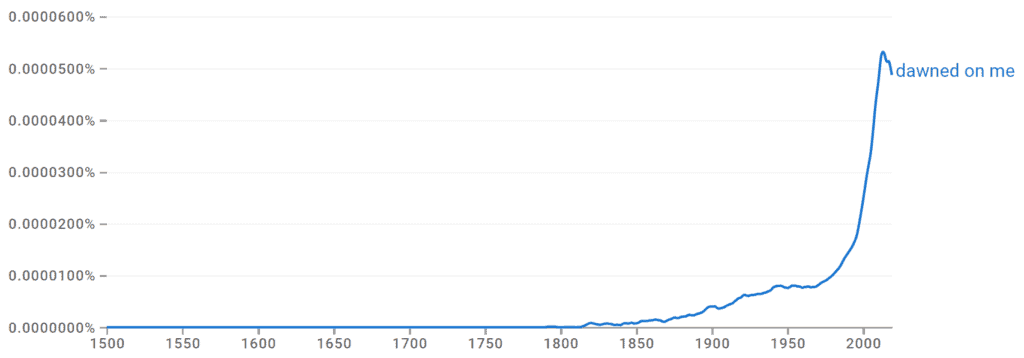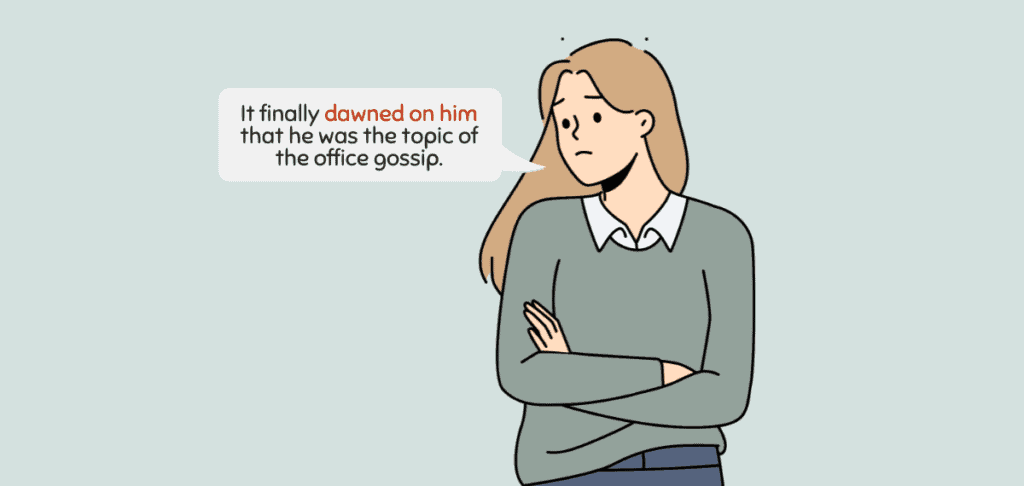I’m breaking the dawn with a phrase that might just light up your language skills: dawned on me. If you’ve ever had an “aha” moment, then you’re already familiar with this idiom. But I’m going to shine a light on a few important details you should know about using this expression.
Dawned on Me Meaning Explained
When something dawns on you, it means you come to realize or understand it, usually pretty suddenly. Imagine the slow rising of the sun, illuminating the darkness. That’s the idea behind this phrase — it’s about the moment of clarity when understanding breaks like the dawn.
Different Tenses You Can Use
Like any good verb, dawn comes with a couple of tense variations. Here’s the lowdown:
- Present tense: Dawn — It represents the current moment. “I’m waiting for the solution to dawn on me.”
- Past tense: Dawned — This tense signifies a past event. “It dawned on me that I had forgotten my wallet at home.”
- Present participle: Dawning — This form indicates an ongoing process. “It is slowly dawning on him that he is lost.”
Dawned on Me Origin and Etymology
This phrase leverages the metaphorical use of dawn, which dates back to the 19th century. Dawn traditionally describes the break of day, but its metaphorical sense, meaning to begin to become apparent, came into English usage in the 1800s. The exact phrase dawned on me seems to have taken root in English during the 20th century.
Dawned on Me Synonyms
Switch things up and try a few other ways to express this same idea.
- Realized
- Struck me
- It hit me
- Understood
- Came to understand
- It occurred to me
Examples of Dawned on Me in a Sentence
- It suddenly dawned on me that I’d left the oven on this morning.
- As the meeting progressed, it dawned on her that she was the only one prepared.
- “When will it dawn on you that he isn’t coming back?” she asked, her voice full of concern.
- It finally dawned on him that he was the topic of the office gossip.
- After hours of pondering, it dawned on us that we’d been looking at the problem all wrong.
- “I don’t know why it hasn’t dawned on them that we’re serious about this issue,” the organizer grumbled.
- As he looked at the clues, it slowly dawned on him who the culprit was.
- When the solution to the math problem dawned on me, I felt a sense of relief.
- “I can’t believe it hasn’t dawned on you yet,” she teased, watching his confusion.
- After the presentation, it dawned on the team that they had a lot of work ahead.
It’s a New Day!
And that’s a wrap on the expression dawned on me! A phrase that captures those moments when understanding hits us like the first rays of sunrise. Now that this has dawned on you, go forth and light up your conversations with your newfound knowledge. And be sure to read my other quick grammar guides on phrases just like this!
Related Articles:



